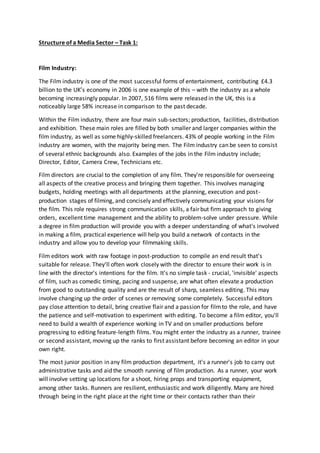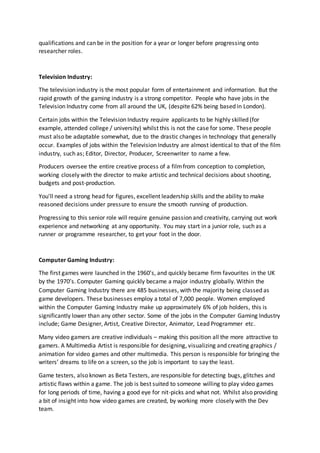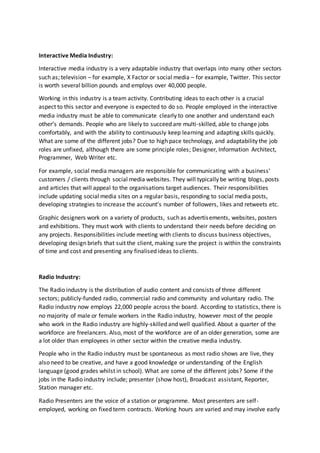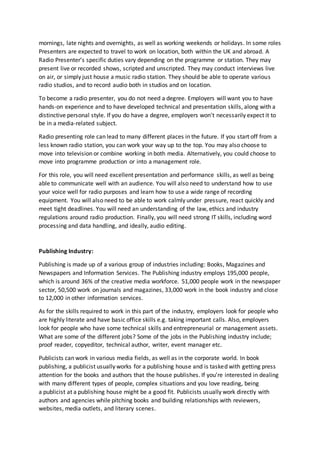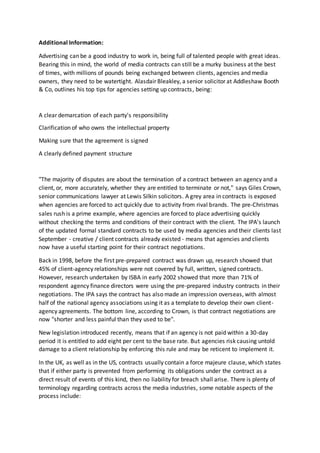The document summarizes various media sectors including film, television, computer gaming, interactive media, and radio. It provides details on the structure and size of each sector as well as examples of common jobs. For films, it notes the industry contributes £4.3 billion annually to the UK economy and includes roles like director, editor, and camera crew. Television is the most popular entertainment form but computer gaming is growing, with jobs requiring various skill levels across sectors.
